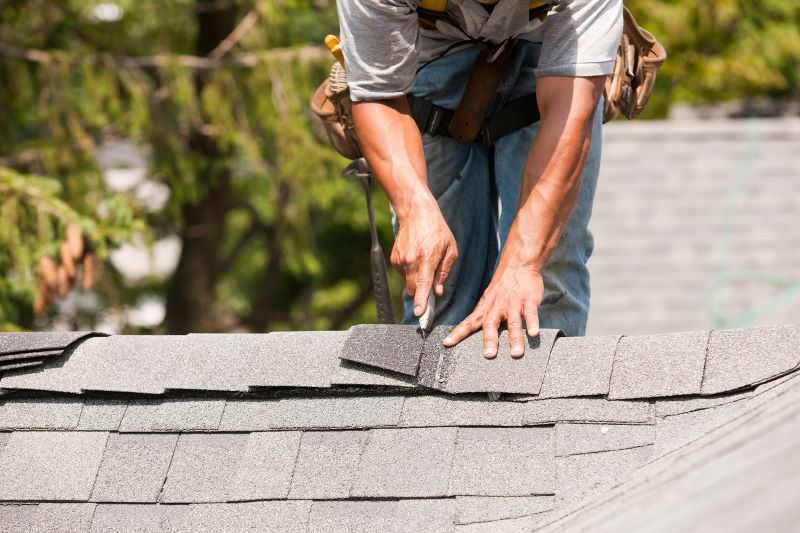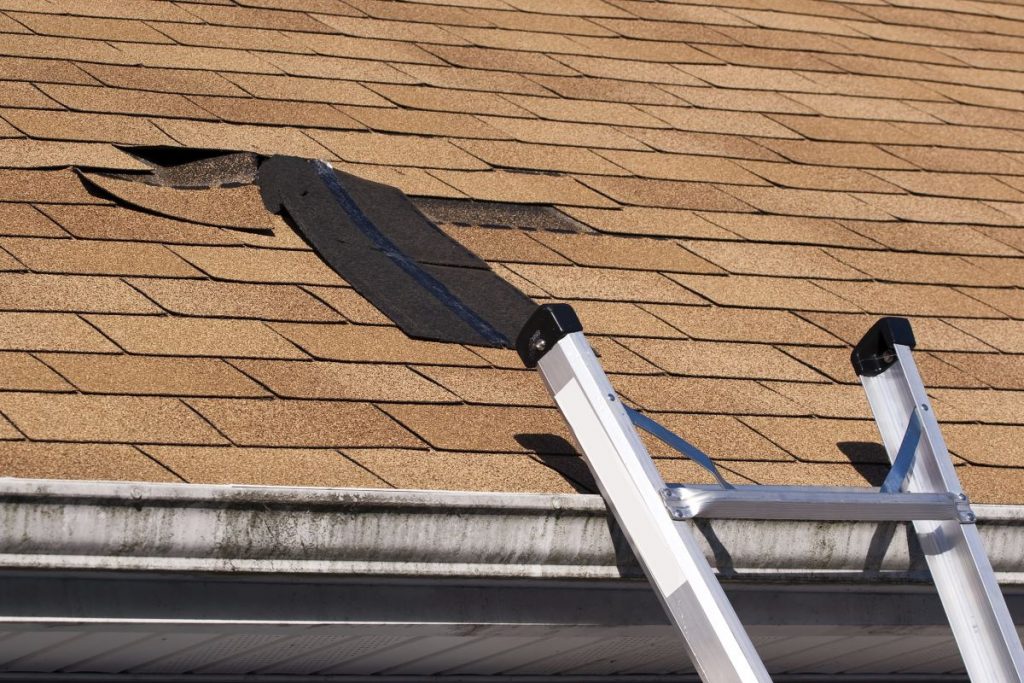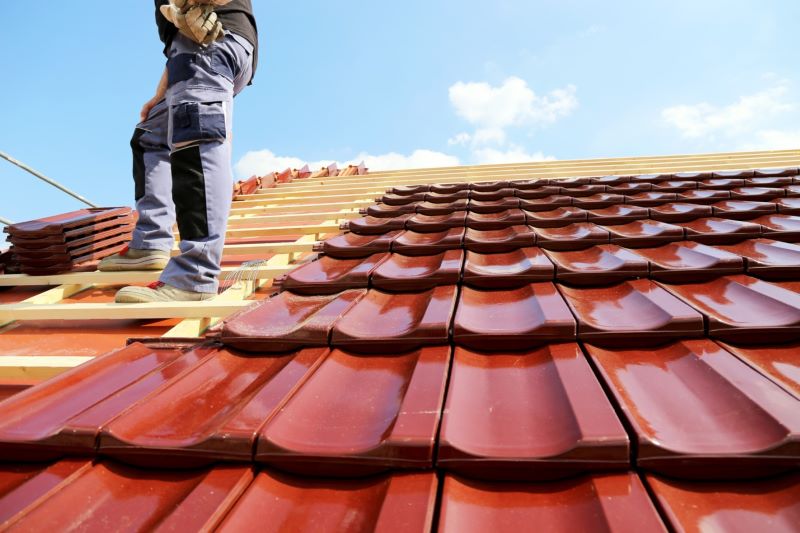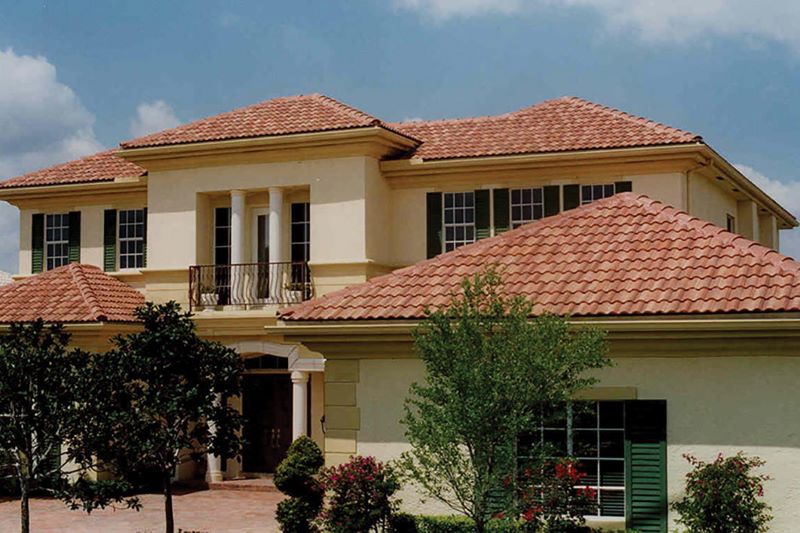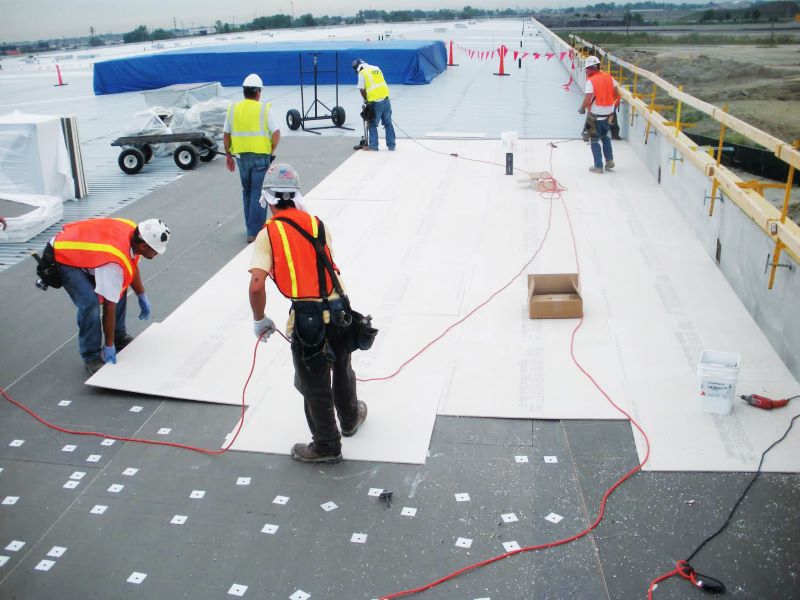Table of Contents
Many homeowners spend time saving up for a beautiful kitchen renovation or dreaming up plans for backyard landscaping. But roof replacement, maintenance, and repair also represent essential investments every homeowner needs to consider at some point.
Though spending money on a roof may not seem as exciting as installing new hardwood floors or upgrading your bathroom, it’s a crucial part of ensuring your home is structurally sound, energy-efficient, and protected from harsh weather at any time of year.
So how do you know when it’s time to replace your roof? And how much does it cost to replace a roof? Check out our guide for all the details relating to roof repair and replacement.
How Long Does a Roof Last?
The lifetime of a roof depends on many factors, such as the type of roofing materials used and the climate of the area. Roofs installed in areas with extreme weather conditions like snow or hurricanes typically do not last as long as those in warm, dry climates.
The quality of materials used and the installation technique can also affect how long the roof lasts. Usually, higher quality materials and proper installation will ensure the roof lasts years longer than a roof that was poorly installed with cheap materials.
Here are the average expected lifespans of a few popular roofing types:
- Asphalt shingle: 20 years
- Fiber cement shingle: 25 years
- Wood shake: 30 years
- Metal: 50 years
- Slate, copper, or tile: 50 years
What is the Cost to Replace a Roof?
As with the lifespan of a roof, the replacement cost depends on many factors, including the type of roofing material used and the size of the roof. Roofs with extensive damage will cost more to replace than roofs with less damage.
According to data collected by HomeAdvisor, the average cost of roof replacement in 2020 is $8,095. The range spans from $5,353 to $10,874. This cost also depends on the location; for example, cities like Denver have higher than average costs for roof replacement, while cities like Austin have costs that are lower than the national average.
You can reach out to local roofers or use a roofing cost calculator to get a more accurate estimate based on your location. Other factors that may influence the cost of replacing a roof include:
- Roof pitch
- Installation technique
- Number of layers
- Coding laws
- Additional features like skylights and chimneys
What Time of Year is Best to Replace the Roof?
Late spring and fall are generally considered the ideal times to replace a roof. Both times of year typically offer moderate temperatures and a small chance of snow or heavy rainfall. Roofers usually depend on the heat of the sun to activate the sealing process on asphalt shingles, making it even more ideal to replace a roof when it is warm (but not too warm).
However, it’s definitely possible (and sometimes necessary) to replace a roof in any season. If a roof has urgent repairs that need to be made, an experienced roofing contractor will be able to handle the task no matter the weather.
Roof Replacements in the Cold
If your roof is being replaced in the winter, roofers may need to hand-seal asphalt shingles. This process takes a little longer, but it can sometimes be in your best interest since roofers are better able to ensure that each and every shingle seals properly. Roofers will also need to take extra precautions when using roofing equipment, which can be more difficult to operate in extreme cold.
If you choose to replace your roof in cold weather, it’s important to ask your roofer about their technique and experience replacing a roof in the winter. You’ll want to hire a roofer that takes care to keep employees safe and has a clear backup plan in case of inclement weather.
Should Your Old Roof be Removed?
Should the old roof be removed before installing a new one? The answer depends on the condition of the old roof. If the whole roof is being replaced, it’s likely that the roof may have issues like dry rot. In this case, it’s always best to remove an old roof before installing a new one.
Removing an old roof provides a fresh and smooth surface to install new roofing. Shingles installed on a clean, smooth surface will look straighter and have a more appealing aesthetic-but it’s not just about the appearance. This will also help ensure your roof offers better performance and lasts longer than a roof that is installed over an old one.
Though it does cost a little more to tear out an old roof before installing a new one, the investment is usually well worth the money. Homeowners who skip this step may end up paying more for roof repairs in the future.
How Long Does it Take to Replace a Roof?
It usually takes roofers about 2-3 days to replace an average-sized, residential roof (1,600 square feet). However, other factors may affect the roof replacement timeline. Such variables include:
- Weather: Though roofs can be replaced in cold weather, it’s usually unwise to install a roof when it is raining or snowing. This type of weather may delay the timeline.
- Type of roofing material: Some roofing materials take longer to install than others. The type of underlayment or style of shingle installation can also require more time than the average 2-3 day period.
- Size of the roof: Roofs that are larger than 1,600 square feet will take longer to install, while smaller roofs may take less time.
Can You Put a New Roof on Top of an Old Roof?
As we mentioned earlier, it is possible to put a new roof on top of an old roof-but it’s not usually the best option. Though putting a new roof over an existing one may be convenient and affordable, it also compromises the performance of the roof, adds unnecessary weight, and doesn’t look as visually pleasing. Putting a new roof on top of an old one also prevents roofers from being able to replace underlayment in the future, and it could affect the roof warranty.
Caring for Your Roof
Now that you know more about roof repair and replacement, you’re better equipped to maintain and care for your roof, no matter what comes your way. If you ever have questions about your roof, find a qualified roofing contractor in your area. They’ll use their expertise to determine your roofing options and how to best meet your needs.
